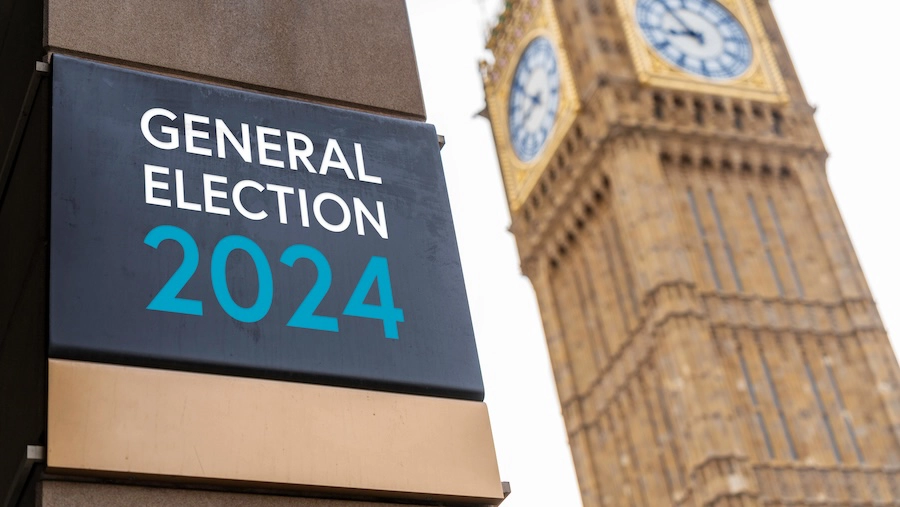The main parties’ manifestos will bring welcome relief to business leaders worried about further reform.
The UK’s five main political parties – Labour, the Conservatives, Reform UK, the Liberal Democrats, and the Green Party – have all published their manifestos, giving us visibility into their plans regarding R&D Tax Relief, the vital scheme providing startups and scaleups with billions of pounds of much-needed funding.
R&D Tax Relief has been through a period of immense change. Starting in 2021 with the re-introduction of a PAYE Cap for SME claims, the government has implemented a range of sweeping reforms seeking to ensure the scheme provides value for money and cut down on fraudulent and abusive claims, which cost taxpayers over £1 billion per year.
These reforms include the introduction of the additional information form (AIF), requiring all companies to provide detailed financial and technical information about their projects; the launch of the claim notification form which some companies must submit before they file for R&D Tax Relief; and the expansion of the list of costs that qualify for relief to include expenditure related to cloud computing, data and pure mathematics.
You can learn more about how these changes impact your company in our on-demand webinar.
However, it looks now like this period of unprecedented change is over. Both Labour and the Conservatives – the two parties projected to take the most seats on 4 July – have pledged to maintain R&D Tax Relief as is over the next parliament.
Labour and Conservatives Promise Stability
Labour did not make this pledge in its manifesto. In fact, ‘Change’ does not mention R&D Tax Relief whatsoever.
However, as I explained in my blog ‘What Would a Labour Government Mean for R&D Tax Relief?, the party promised to “maintain the current structure of R&D tax credits over the next parliament, while cracking down on fraudulent claims and those made in error” in Business Partnership for Growth, a sort of ‘minifesto’ detailing how a Labour government would engage with the private sector.
...there has been far too much chopping and changing in recent years, with five changes announced this parliament alone. To provide stability, Labour will maintain the current structure of R&D tax credits over the next parliament, while cracking down on fraudulent claims and those made in error.
The Labour Party - Business Partnership for Growth
Meanwhile, the Conservative’s manifesto, Clean Plan. Bold Action. Secure Future. pledges to “Maintain our R&D tax reliefs”, noting that “recent changes worth £280 million a year have simplified and improved R&D tax reliefs, including by bringing more SMEs into scope of the relief.”
"Maintain our R&D tax reliefs. Recent changes worth £280 million a year have simplified and improved R&D tax reliefs, including by bringing more SMEs into scope of the relief. "
The Conservative Party - Clear Plan. Bold Action. Secure Future.
Reform, Liberal Democrats, and the Green Party
Interestingly, none of the other parties’ manifestos reference R&D Tax Relief directly. But their statements regarding research and development funding generally do shed some light on their likely attitude towards the scheme.
Reform UK’s ‘Our Contract with You’ has little mention of innovation funding. Instead, it focuses on bringing down the tax burden on companies by increasing the minimum profit threshold to £100,000 and reducing corporation tax from 25% to 15% over the next three years. This would make R&D Tax Relief less lucrative for profitable companies, but would reduce their tax liability overall.
Subscribe to GrantTree's Newsletter
To get all the latest news on R&D Tax Relief, grants, and other forms of innovation funding for your business, sign up to GrantTree’s newsletter!
Meanwhile, the Liberal Democrats pledged to “support science, research and innovation, particularly among small businesses and startups”, and to aim for “at least 3% of GDP to be invested in research and development by 2030, rising to 3.5% by 2034.” Given how vital R&D Tax Relief is to UK innovation, it would be impossible for a Liberal Democrat-led government to keep either pledge without maintaining or even expanding the scheme.
Finally, the Green Party said its MPs would push for a £30bn increase in R&D spending and “a £40bn investment per year in the shift to a green economy” over the course of the next Parliament. R&D Tax Relief would be an excellent vehicle for distributing some of this investment. The scheme could even be tweaked to make additional relief available for projects and costs associated with decarbonisation and sustainability.
Further Changes Yet to Take Affect
Though it seems the upcoming election will not be a driver for further change to R&D Tax Relief, the reforms made by the current government are continuing to take root.
The new R&D Expenditure Credit (RDEC), aka the ‘merged’ scheme – a combination of SME R&D Tax Relief and the old RDEC scheme – has just come into force. As it applies to accounting periods starting on or after 1 April 2024, it will be some time before companies come face to face with this major change.
Companies are under enormous pressure to maintain compliance with the latest regulations. Claims that do not comply with guidance are liable to face an HMRC R&D enquiry, a lengthy investigation launched by HMRC to determine whether a claim is genuinely eligible. One in five claims is now under investigation, a 1900% increase on the agency’s previous enquiry rate.
Let GrantTree Keep You Compliant
With 14 years’ experience preparing compliant claims and a team of PhD-level technical experts standing by to prove your eligibility to HMRC, GrantTree is the perfect partner for your next R&D Tax claim.
We will make sure your claim reflects all the latest legislation, giving you peace of mind, saving your time, and protecting your company’s access to essential funding.
To learn more about how GrantTree can support you, just get in touch.




